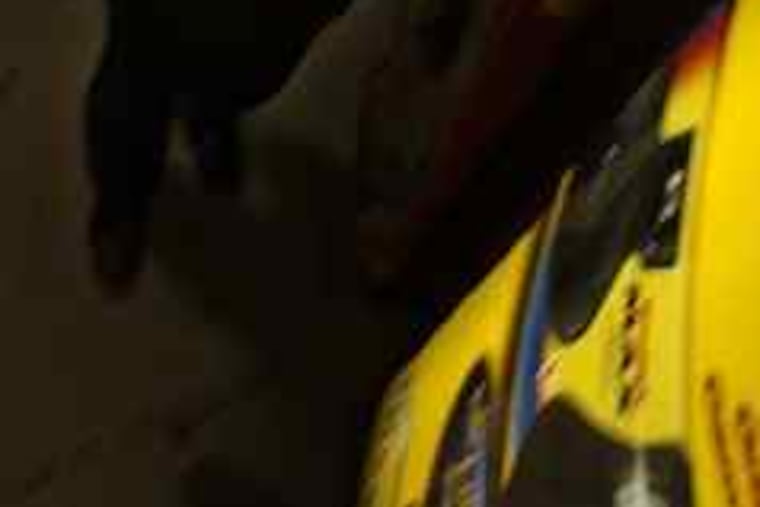PhillyDeals: Card-reader company faces a rough road
USA Technologies Inc., of Malvern, faces the same problem as any number of local biotech and software firms: It has an attractive product that it hasn't been able to sell at a profitable price, so far.

USA Technologies Inc., of Malvern, faces the same problem as any number of local biotech and software firms: It has an attractive product that it hasn't been able to sell at a profitable price, so far.
Tough place for a public company to be, especially in a recession.
Can these firms stay independent long enough to start making money and become fixtures in corporate Philadelphia? Or will the products they worked for years to build end up enriching big corporate owners who buy the firms?
USA sells systems that make it possible to use Visa or MasterCard at vending machines. The company has been working on the systems, signing up customers, and losing money, for 10 years, say analysts Thomas McCrohan and Leonard DeProspo at Janney Capital Markets.
Its product, the ePort card reader, "makes sense," but "profits have been hard to come by," McCrohan wrote yesterday in a report to clients.
The industry is in a funk. As vending-machine prices rise above $1 an item, and people carry less change, sales have slowed. U.S. vending sales fell 5 percent last year, to $22 billion, the analysts wrote, citing data from Automatic Merchandiser.
ePort looks like a solution. Machine suppliers and operators would love to see more card readers. First Data, MasterCard, Visa, Aramark, Coca-Cola and Pepsi have all agreed to use USA machines.
The company has raised $48 million from stock sales since 2005, and it "remains virtually debt free." It already is the sixth-largest manufacturer of U.S. point-of-sale terminals (although that's not as big as it sounds: the top three, VeriFone, Ingenico, and Hypercom control more than 95 percent of the U.S. market and 70 percent worldwide).
So USA shares are in the basement, despite the company's projections that it will be profitable by late next year. Rebel shareholders are trying to unseat founder George R. Jensen's allies on his board, as my colleague Mike Armstrong reported recently.
What's the problem? Vending-machine operators make just pennies on every sale and "weren't willing to purchase these devices [the card readers] for $500 per device or more," DeProspo told me.
The company has lately made newer, smaller versions available at $329, or a limited-service model for $199, plus $10 a month, plus per-purchase fees.
Makes sense, McCrohan says, for public laundries and other relatively large coin-machine purchases. But so far there are only around 65,000 card readers at eight million U.S. vending machines.
Instead of building up its workforce, USA has been cutting staff. "They recently laid off 20 percent of their employees and are now operating with 43," says DeProspo.
Janney says it is "neutral" on the stock, "because we believe it will be difficult for the company to accelerate the pace of growth to the rate necessary to create positive operating income."
Free the passengers!
When the U.S. Senate delayed voting on whether to make airlines release trapped passengers after they have spent three hours waiting to take off, President Obama's administration acted.
As of April, a new U.S. Department of Transportation rule "prohibits U.S. airlines operating domestic flights from permitting an aircraft to remain on the tarmac for more than three hours without deplaning passengers" and forces airlines to give trapped passengers food, water and restrooms after two hours, Transportation Secretary Ray LaHood said.
He added, through a spokesman, that his rule goes further than the Senate proposals.
Even under LaHood's rule, air-traffic controllers or ground security can still order passengers kept on planes longer. Airlines on overseas flights get to set their own rules.
The rule follows what the Department of Transportation calls "a series of incidents in which passengers were stranded on the ground aboard aircraft for lengthy periods, and also in response to the high incidence of flight delays and other consumer problems." For instance, the department recently fined Continental Airlines, ExpressJet Airlines and Mesaba Airlines a total of $175,000 for their roles in a nearly six-hour ground delay in Rochester, Minn.
LaHood also told airlines to reschedule "chronically delayed flights," which is how Mussolini got Italian trains to run on time. Read the rules at www.regulations.gov, and search for DOT-OST-2007-0022.